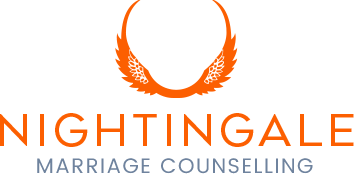
ADHD in Relationships
Understanding, Connection, and Growth.
Neurodiversity— can be the awkward elephant in the room for lots of couple relationships. It’s not that we don’t want to talk about it; it’s just hard to know how. ADHD, for example, often shows up in unexpected ways: impulsive decisions, forgotten anniversaries, or zoning out during important conversations.
These behaviors aren’t about a lack of love or effort—most of the time it’s just how a partner’s brain is wired. When this concept is misunderstood, if you are part of a couple where one t is ADHD neurodiverse and the other neurotypical it can cause frustration, confusion, emotional distance and a sense of sadness for both.
Below a few examples of the behaviors that can manifest in ADHD condition.
Below a few examples of the behaviors that can manifest in ADHD condition.
Hyperactive-Impulsive ADHD.
Is the strand that keeps individuals on high alert all the time, leaving some with a difficulty of staying still:
- Struggling to sit still or relax, constantly fidgeting or moving.
- Interrupting conversations or talking excessively.
- Finding it hard to wait patiently or resist impulsive actions.
- Acting on sudden urges without thinking through the consequences.
Inattentive ADHD.
On the other hand, is the type marked by a quieter, more internal battle:
- Trouble staying organized or completing tasks.
- Frequently misplace important items or forget details.
- Being easily distracted by external noises - or their own thoughts.
- Appearing to “daydream” or not listen, even while trying to focus.
The ADHD twins, if left unmanaged, can not only affect relationships it can also disrupt learning, and make daily life overwhelming with procrastination, disorganization, or time-management struggles. The obstacles thrown at you are real, and they can ripple into careers, personal goals, and your mental health. In the search for dopamine, it is also useful to look at addictions which are often driven in the search for dopamine.
But here’s the twist: ADHD doesn’t have to be just a hurdle—it can be a superpower. With the right understanding, tools, and support, people with ADHD can harness their extraordinary creativity, hyper-focus in areas of interest, and out-of-the-box problem-solving skills.
Struggling doesn’t mean being stuck, Attention-Deficit doesn’t mean Always-Distracted and “Persistent Challenges” doesn’t mean permanent ones. By embracing the unique way your brain works, you can unlock abilities you never thought possible.
Nightingale Couple Counsellors
We’ve seen couples struggle with this in all the wrong ways. One partner might assume the other is careless or unloving, expecting them to “just be normal.” But ADHD behaviors aren’t a matter of poor communication or laziness. The truth is in the phrase you’ve probably heard: “It’s just who I am.” Because for many, it is.
Our team of expert counsellors, some who have specific training in working with neurodiverse couples, aim to guide them toward healthier, happier relationships. With tailored strategies and compassionate support. Let us give you and your partner the opportunity to thrive—together.
Other areas of neurodiverse conditions that can affect relationships:
• Autism
• Dyslexia
• Both neurodiverse in different ways
• Parenting children with a neurodiverse condition
If you’re ready to turn frustration into connection and misunderstanding into empathy, our team are here for you.

As couple counsellors we know only too well how these conditions can effect a couple relationship. Often one part of the couple make assumptions about their partners behaviour. They have expectations that their partner can be more effective by choosing a different behaviour they are not capable of achieving not because they don’t want to just they cannot as they are simply wired differently and that needs a deeper level of understanding of how the conditions impacts them and you.
Online Counselling
Providing you with the tools you need to take the next step.
Technology is rapidly changing the ways we can interact with each other, and counselling is no exception. This
service can be provided upon request. For the below options you will need broadband/internet connection and
somewhere quiet and private you can speak without being overheard or interrupted. Your Counsellor will agree with
you what happens should the technology fail, but in all other respects the counselling relationship will be the same
as a ‘face to face’ one. The Counsellor will speak to you from a private room …
Phone Counselling
The service will connect you with the counsellor on your mobile phone. Sessions for telephone counselling are between 30 minutes to an hour.
ZOOM Counselling
‘Zoom’ requires you to download the ‘Zoom’ application and set up an account. You will also need a PC, laptop, or smartphone with a webcam.
FACETIME Counselling
To access counselling through ‘FaceTime’ you will need a device with the ‘FaceTime’ App installed (such as an Apple Mac, MacBook, or IPad).
Microsoft Teams
We can also use Microsoft Teams to host appointments. Similar to Zoom, you need to download the Microsoft Teams app to your computer, laptop, or smartphone.
Phone
0141 353 9373
Open Hours
Mon-Fri 08.00 – 21.00
Sat 09.00 – 17.00
(out of hours at discretion of Counsellor)
City Centre Location
5 La Belle Place,
Glasgow, G3 7LH
Southside Location
The Prince & Princess of Wales Hospice,
20 Dumbreck Rd,
Glasgow, G41 5BW
